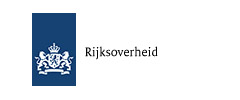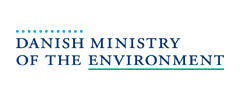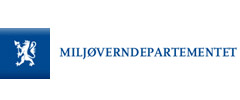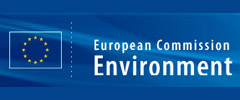Policy dialogue Meeting in Tirana, Sustainable Development, Health and Social justice in Albania
Linking the Ostrava Declaration of the European environment and health process to SDGs Agenda 2030
10.03.2018 |

WECF together with Women in development organized a policy dialogue on linking the Environment, health, social and gender dimensions of Albania’s national strategies in Tirana, Albania on March 7th 2018, on the eve of International Women’s Day (#IWD2018).
Report of the meeting download here – pdf
The policy dialogue with 77 participants, was organized by “Women in development” with WECF and the Albanian ministry of health and social protection, and financially supported by the German Federal ministry for the environment, nature conservation, building and nuclear safety, the German Environment Agency and the European Commission (through WECF’s Framework Partnership #Women2030).
KEY NOTE PRESENTATIONS
“Women in development” executive director Anila Gurakuqi opened the conference by stressing the importance of sharing information, co-operation, joint coordination, sharing the responsibilities and commitments of all parties to achieve sustainable development in the region. Effective implementation of the SDG-s is realized only through a comprehensive and transparent process and only so we can ensure the intended results and an integrated approach. As all levels of governance share responsibilities, by cooperation we can contribute the wellbeing of all citizens, and through bridging gaps transform rhetoric into reality.
Ardiana Jaku, Deputy minister of Health and Social Protection, explained how the targets of the Sustainable Development Goals (SDGs) of the Agenda2030 are integrated into the strategies of the Ministry. For example, the social protection programs contribute to achieving SDG 1 - eradication of poverty. The SDG3 Health goal of securing a healthy life and wellbeing throughout all ages is incorporated in the national development plan for mental health 2013-2020. Equal education opportunities programs and the national plan for disabled persons also contribute to the aim of ‘leaving no one behind’. The achievement of gender equality and economic empowerment of women are key part of the government strategies. Today, after the 2017 elections, the number of women parliamentarian is at the highest ever, with 27,1% women parliamentarians. Albania also has the objective on elimination of all forms of violence against women, entrenched in the law on measures of ending domestic violence.
Kleina Kasanai, advisor to the deputy Prime Minister, stressed that Albania has already started the evaluation process for defining the SDG priorities through the preparation and drafting of the Analysis on Sustainable Development Objectives in existing Sector Policy. She exclaimed the importance of Albania achieving the ambitious Agenda2030 and the need for an integrated and inclusive plan of action harmonized with the priorities of the EU accession process.
Sascha Gabizon executive director of WECF international pointed out that our lives are not one-issue-at-a-time, but that all issues are interlinked every day, and that the Sustainable Development Goals need to be implemented jointly. In their cooperation with partners in Albania at local level issues like access to safe water and sanitation are linked to diseases and to women’s equality. There are already many best practices of integrated implementation of the SDGs in Albania, which can contribute to the targets of the Ostrava Declaration and the Agenda2030 which will be debated in this policy meeting. The results of this meeting will be presented to the WHO and UN as possible ‘localized’ national targets for action.

SETTING NATIONAL PRIORITIES AND CIVIL SOCIETY ENGAGEMENT
Fioralba Shkodra, head of UN resident coordinator’s office looked at how national SDG priorities are being developed while involving civil society. She explained how in the 2-year negotiation of the Agenda2030 process, citizens organizations were continuously included. Consultations were held in Albania where CSOs expressed their needs and priorities on issues such as unemployment, education opportunities, youth and women’s equal rights. The novelty of this agenda is to “leave no one behind” – giving a voice to the marginalized, disadvantaged. For Albania it has been a priority that the Agenda2030 is in line with the national agenda for EU integration.
In May 2017 a political committee was formed for oversight of all SDG processes. CSOs are represented through one person. The committee is lead by the Ministry of Health and also includes 1 member of academia, 1 from private sector 1members and 2 donors (the EU commission and Sweden). After 2 meetings, the committee approved a baseline report to see how to develop the targets mid and long term for 2030 agenda. In July 2018 Albania will present its SDG progress report at the High Level Political Forum meeting at the UN in New York. Last year, it was Montenegro that presented its report from the Balkan region. In this context the governments of the region agreed to focus on aligning national SDG priorities to the framework for EU integration.
The CSO contribution is specifically called for in the SDG process. CSO are encouraged to prepare an alternative (or shadow) report. For example, prioritizing gender and environment targets, and presenting your challenges and priorities for national and local policies and activities. The role and voice of civil society is very important, not just for alternative data gathering but also at local level to increase awareness as well as the accountability of government.
HEALTH AND GENDER INDICATORS
Merita Xhafaj, Ministry of Health and Social development, General Director of the General directorate of policies and development of health and social protection, addressed the harmonization of SDG indicators focusing on health and gender issues. The Ministry of Health is responsible for harmonizing 43 indicators of the SDGs. For SDG-5 on Gender Equality and Women’s Empowerment, a national council was formed based on the Law of Gender Equality and the 2016 2020 action-plan. 3 Civil society organizations (CSOs) members were selected in an open call to be on the national council. The council approved a report on the gender equality strategy. A national council of CSOs was established by law and has a roadmap and guidelines affirming the dialogue with CSOs. This is a constructive dialog based on interactive communication principles and adding transparency to the fight against corruption.
Gender budgeting: We are aware that gender-responsive policies are impossible without financial resources, and with assistance of UN Women for several years there have been budget related programs and Albanian gender based budgeting was the first regional example of its’ inclusion in law on state finances. With the Ministry of finance in 2017 we have realized this gender-budgeting. There is no evaluation as yet of the impact, but 20 percent of total budget that will be start to be spent from next year are gender budgeted. This makes Albania a role model for gender responsive budgeting (GRB) in the region.
Klodiana Marika, Ministry of tourism and environment, Director at the Directorate of environmental development, addressed environmental policies in Albania and linking them to the Ostrava declaration and the SDGs. Key for the implementation of SDGs is that there is local ownership to bring this agenda forward and to monitor achievement in a comprehensive and inclusive manner. There are already initiatives to improve air quality, for better waste management by local municipalities responsibility and CSO initiatives, but more needs to be done to work across sectors and disciplines to achieve SDGs and 2030 agenda. She presented amongst others a national program, financed by the Global Environment Fund, to clean up old stock-piles of highly hazardous waste (banned pesticides and other POPs) which is a great threat to drinking water sources and agricultural products.
Gazmend Bejtja, World Health Organization office Albania, presented the Ostrava declaration and how it is being integrated into the Agenda2030 national strategies. He presented the European Environment and Health process, measuring progress and the importance of having concrete and quantitative targets. The Ostrava Declaration has 5 public health priorities: water, sanitation and hygiene; waste; chemical safety; air quality and climate change. The work WHO does in Albania aims at eradication health inequality of all groups, and reducing health impacts from waste, air pollution, chemicals in the food chain, hormonal changes and water borne diseases. There is a lack of data regarding health impacts of chemical waste in Albania. Albania is taking part in the initiative of healthy cities of Europe and the PEP on reduced health impacts from transportation. The Declaration of Ostrava only reconfirms the engagement of Albania for core concrete identification of local level problems and possible solutions.

FROM LOCAL TO GLOBAL: MAKING THE LINKAGE AND SHARING EXPERIENCES
Fiorela Plani of WIDSH presented the preliminary results of the gender and SDG assessment conducted in Albania in the framework of the project “Women 2030”. The assessment consisted of a survey amongst 198 people including 111 women (56%) and 87 men (44%), from urban, peri-urban and rural areas. Further focus interviews to into more depth were carried out with another 30 women and 30 men conducted in two municipalities, Shkoder and Malesia.
The result of the interviews are community-generated data, based on a well-founded survey methodology, which can be used as input into the national SDG monitoring.
The results show a higher gender gap in terms of time allocated to paid and unpaid work. Especially in rural areas, but also in urban, women have less or no free time, and work up to 4 times more hours than men. Living conditions are worse in peri-urban and rural area with a low level of satisfactory with water and sanitation conditions. Most tap water cannot be used for drinking and is only provided a few hours per day.
The interviews also show that parents are concerned for their daughters lack of safe sanitation conditions in schools, even in urban areas.
On the topic of women’s participation and influence on decision-making, they felt they have more voice at national level, than locally.
When asked about their priorities, highest priority is given to improving pre-school child care and raising reducing gender based violence.
Aleksandra Kumbuli, WIDSH presented the contribution of the CSO Women in Development to policy processes, from local to global. She presented some of the results of projects in Albania improving access to safe sanitation, for example, the constructed a pilot ecological sanitation building in a rural area which is not connected to the sewage system. They are also training on how to protect drinking water sources, with the Albanian translation of the “Water and Sanitation Safety Plan” compendium.
She also briefly presented the latest Women 2030 training on how to better use social media for awareness raising, held in Macedonia, including women and gender organizations from Albania, Macedonia and Romania, where they established the Balkan WASH network.
She shared impressions from the WECF youth–delegation in which she participated at the 6th WHO inter-ministerial conference in Ostrava. The youth gave 6 interventions in the plenary ministerial sessions and organized a side event where they presented a movie which they made in 7 Eastern European countries on environment and health.
Aleksandra Kumbuli also presented the input given by her organization to the 3rd United Nations Environment Assembly (UNEA-3) in Nairobi where they presented local best practices to feed in to global action on the environmental goals of the Agenda 2030. She gave a plenary presentation on their organizations work to reduce health impacts from chemical and water pollution.
Finally, she explained how Albania and other UN member states met In Geneva in February 2018 to prepare a regional update of 2030 agenda and the voluntary reports (including from Albania) to be presented at the HLPF this July. She shared how the civil society organisations from Albania and other countries had contributed to the discussions and expert panels and that their input will now be prepared as an alternative ‘shadow’ report that the CSOs will present at the HLPF later this year..
MAPPING STAKEHOLDERS
The participants worked in 2 working groups to do a mapping of which civil society organizations are working on which goals and targets of the Sustainable Development Goals. The results show that there is a lot of complementarity and that Albania will benefit from cooperation between the different CSOs to interlink the national SDG implementation plan. A matrix of stakeholder was designed (see annex).
PRIORITIES FOR HEALTH, ENVIRONMENT AND SOCIAL INCLUSION
The participants identified following key priority issues for the national portfolio for Environment & Health (Ostrava Compilation of Actions) and for the national implementation plan of Agenda2030:
- Inadequate sanitation conditions, mainly in rural, pre-urban areas and in public buildings such as schools also in urban areas.
- Poor quality of drinking water mainly in rural areas but also in urban areas.
- Increasing involvement of women and youth in local government and decision-making
- Poor hygienic-sanitary conditions in schools in rural, pre-urban and urban area.
- Pre-school care for children from 3 to 5 years old and 6-15 years old to reduce care burden on women.
- Awareness campaign to end violence against women
The CSOs proposed to contribute to the Voluntary National Report VNR on SDGs which will be presented in July 2018 to the United Nations. Some of the specific actions can also be submitted as part of the portfolio of actions for the implementation of the Ostrava Declaration, which the Albanian gove rnment is expected to present by end of 2018 to the WHO.
Related News
#Ruralwomen: join our Women2030 campaign!
15.10.2018
What to expect from the climate talks that resumed in Bangkok this week?
COP24: second intersession of the climate change negotiations 2018, Bangkok, Thailand
07.09.2018
Together for sustainable sanitation and water security worldwide!
Stockholm, 26-31 Aug 2018: WECF participated in the World Water Week 2018 to further support the worldwide implementation of SDG 6
01.09.2018
WECF at HLPF 2018
"While HLPF is a great space for feminist solidarity, networking, awareness raising and knowledge sharing of best practices, you cannot really shake the feeling of: are we really doing enough to achieve the Sustainable Development Goals?"
07.08.2018







































